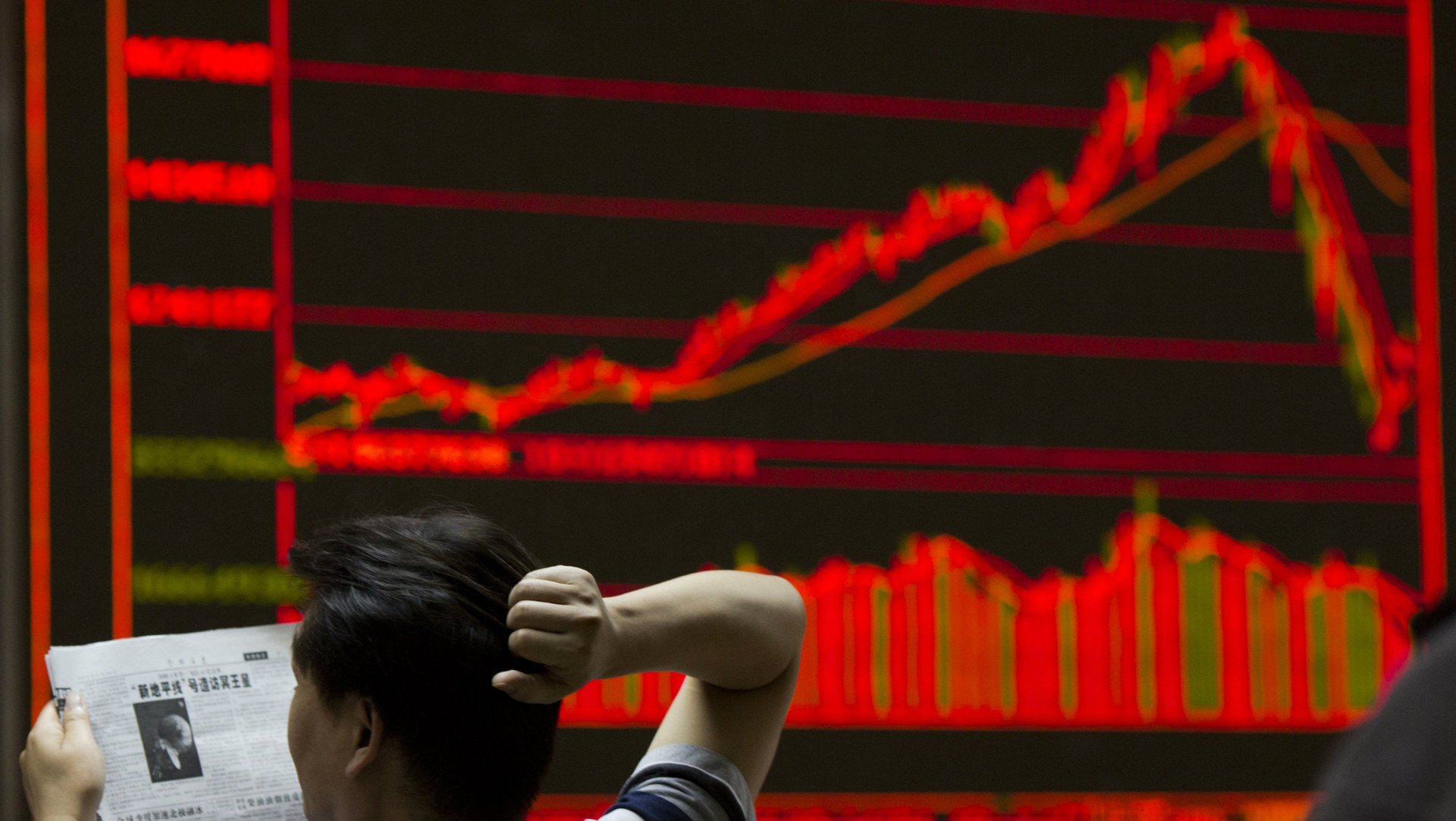If this Chinese company’s stock drops, the CEO will reimburse employees
Over a thousand Chinese companies voluntarily halted trading of their stock to try to escape China’s recent market rout, temporarily earning themselves a reprieve from slides of 30% or more that hit their peers. But suspending stock was just postponing the pain, many of these companies are now learning.


Over a thousand Chinese companies voluntarily halted trading of their stock to try to escape China’s recent market rout, temporarily earning themselves a reprieve from slides of 30% or more that hit their peers. But suspending stock was just postponing the pain, many of these companies are now learning.
Beijing Baofeng Technology, an online video service provider which halted trading for more than a month, has watched its share price shrink over one third after it resumed trading on July 13—though as trading ended on July 21, its price was listed at 175.55 yuan, well above its IPO price of 9 yuan ($1.45).
The whole Baofeng story might sound a bit crazy. After its IPO in March, Baofeng’s share price grew 3,300% in three months, a rise that as some said presciently was a sure sign of a bubble. Baofeng hit a temporary rough patch when it was sued in a copyright case related to movies and television shows, but the stock continued to rise.
The company halted trading on June 11, one day before China’s market peak, after its price set a record high of 307 yuan ($49.45) on the previous trading day, promising a material disclosure.
When Baofeng prepared to start trading one month later, after China’s indexes had sunk by about a third, the company’s CEO Feng Xin knew it couldn’t escape a hit (link in Chinese): “There’s no way we can hide from the plunge,” he said.
Yet Feng has tried his best to soften the blow. On July 16 he encouraged his employees to buy more company shares, by promising to make up any losses they might suffer, according to a public disclosure (link in Chinese) on the Shenzhen stock exchange:
Here I propose all the Baofeng staff members to actively buy Baofeng Technology’s stock. Meanwhile, I guarantee that I will compensate for all the losses for those who buy shares from July 17 to July 21 2015 and hold them for over six months. If you suffered losses for holding more stocks, I’ll pay for back; if the stock price goes up, you get the earnings.
For employees who have stayed in the company for over three years and have never bought any company shares, I’ll subsidize you 50% of the money.
Feng also said he and other directors hold as many company shares as regulation allows, or they would buy more. Feng has pledged 18% of Baofeng’s shares he holds, or 3% of the company shares in total, for loans, according to another disclosure (link in Chinese) on July 20.